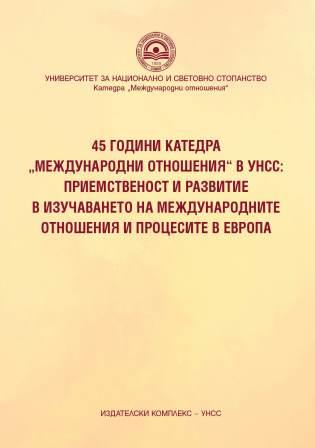Перспективи за разширяване на еврозоната в условията на икономическа и здравна криза
Perspectives for Euro Area Enlargement in the Context of an Economic and Health Crisis
Author(s): Kaloyan Simeonov
Subject(s): Politics / Political Sciences, Politics, Economy, EU-Approach / EU-Accession / EU-Development, Geopolitics
Published by: Университет за национално и световно стопанство (УНСС)
Keywords: economic and health crisis; euro area; ERM II; enlargement
Summary/Abstract: Enlargement of the euro area seems illogical, especially in the context of the economic and health crisis that the European Union is still in. But the EU has proven that when there is a crisis, it can create “more Europe”. The Baltic countries – Estonia, Latvia and Lithuania – joined the euro area in 2011, 2014 and 2015, respectively, when the previous global economic and financial crisis was still in force or slightly fading. Bulgaria and Croatia joined the Exchange Rate Mechanism II (ERM II), called the forefront of the euro area, and the EU Banking Union, respectively, in the summer and early autumn of 2020. This happened precisely in the midst of the current economic and health crisis caused by the COVID-19 pandemic. This may lead other non-euro area Member States to think more seriously about the prospects of preparing for the adoption of the euro. The Brexit crisis also raises important questions about the future of the single currency. The current analysis aims to determine whether it is possible in the context of the economic and health crisis to work on enlarging the euro area.
- Page Range: 165-174
- Page Count: 10
- Publication Year: 2022
- Language: Bulgarian
- Content File-PDF

